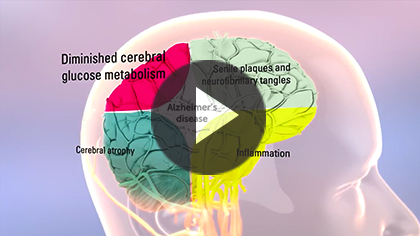Help with legal and financial matters
Helping your loved one plan for the future is an important way for you to support him or her1,2
 When people have been diagnosed with Alzheimer’s disease, one of the most important ways to support them is to help them plan for the future. It’s best to make health, legal, and financial decisions as early as possible, while the person with Alzheimer’s disease is able to be involved in the decision-making process. Review all of his or her legal and financial information and make sure it reflects the person’s wishes.
When people have been diagnosed with Alzheimer’s disease, one of the most important ways to support them is to help them plan for the future. It’s best to make health, legal, and financial decisions as early as possible, while the person with Alzheimer’s disease is able to be involved in the decision-making process. Review all of his or her legal and financial information and make sure it reflects the person’s wishes.
Navigating legal and financial matters can be complicated, but if you need help there are professional financial managers and medical lawyers who focus on planning for people with long-term, progressive illnesses. You can ask the doctor for a referral, or a national association or support group can point you in the right direction.
Get legal and financial information up to date1
Check to see that the following documents are up to date:
- Durable Power of Attorney for Finances – This gives someone called a trustee the power to make legal and financial decisions for the person with Alzheimer’s disease
- Durable Power of Attorney for Healthcare – This gives someone called a proxy the power to make healthcare decisions for the person with Alzheimer’s disease
- Do Not Resuscitate (DNR) Form – This tells healthcare staff how the person would like end-of-life healthcare managed
- Living Will – This states the person’s wishes for healthcare at the end of life
- Will – This tells how the person wants his or her property and money to be divided among those left behind
- Living Trust – This tells someone called a trustee how to distribute a person’s property and money
For more information on planning legal and financial matters, contact the Alzheimer’s Disease Education and Referral (ADEAR) Center at 1-800-438-4380 or visit www.nia.nih.gov/alzheimers.


